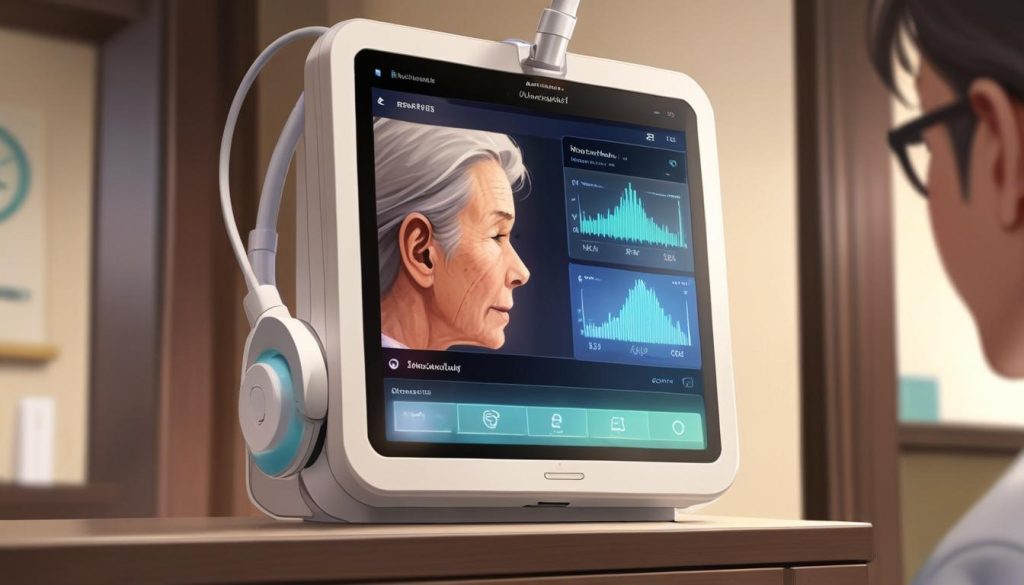Recent advancements in AI are transforming audiology, making early detection of frequency loss more effective, particularly in adults over 65.
Recent advancements in artificial intelligence are significantly enhancing the field of audiology, particularly in detecting early frequency loss in human hearing. This development is critical as many adults, especially those over 65, face declining sensitivity to higher frequencies due to factors like age, environmental exposure to noise, and genetic makeup.
According to reports from ForexTV, the normal human hearing range spans from 20 Hz to 20,000 Hz, yet studies indicate that many middle-aged adults begin to experience diminished sensitivity to frequencies above 8,000 Hz. This decline in frequency perception can impair speech intelligibility and spatial awareness, leading to challenges in daily communication.
Dr. Liliana Cabrera-Piccinini, a leading audiologist and contributor to Ask An Audiologist, highlighted the importance of early frequency-based tests for detecting potential hearing loss. In speaking to ForexTV, she stated, “Early intervention is quite important since often slow hearing loss is present. AI-powered audiology instruments improve diagnosis accuracy, thereby allowing audiologists to personalize therapies meant to improve long-term hearing health and speech understanding.” The introduction of AI-driven audiology devices, which can identify subtle alterations in frequency perception that traditional tests might miss, is transforming early detection processes.
Moreover, the prevalence of high-frequency hearing loss is significant, affecting approximately 30% of individuals over the age of 65, a condition often termed presbycusis. The integration of advanced machine learning models into clinical practice enables clinicians to create precise frequency maps, facilitating earlier interventions before noticeable communication difficulties arise.
Noise exposure, particularly sounds exceeding 85 dB—similar to the noise levels in busy city environments or live concerts—remains a major contributor to hearing deterioration. To combat this, audiologists advocate for proactive measures, which include the use of noise-cancelling technology, custom earplugs, and safe listening practices, all aimed at preserving hearing health.
Further innovations in the realm of hearing rehabilitation include AI-enhanced hearing aids and frequency-modulated (FM) systems. These intelligent devices can dynamically adjust their frequency amplification according to the user’s specific hearing profile, thereby optimising sound clarity in real-time. Recently developed technologies in these devices also allow for improved background noise filtration and enhanced speech recognition, offering users a greatly improved auditory experience in complex sound environments.
Raising awareness about the spectrum of human hearing is pivotal for individuals wishing to maintain their auditory health. Regular screenings and preventative strategies, combined with the option for early intervention, can lead to improved long-term hearing function. As a result of growing awareness regarding frequency perception, an increasing number of individuals are pursuing professional audiological evaluations to keep track of their hearing capabilities.
Ask An Audiologist, a key resource for hearing health information, continues to provide expert guidance and education on these advancements in audiology, emphasising the importance of proactive engagement in hearing preservation and professional advice when it is necessary.
Source: Noah Wire Services





